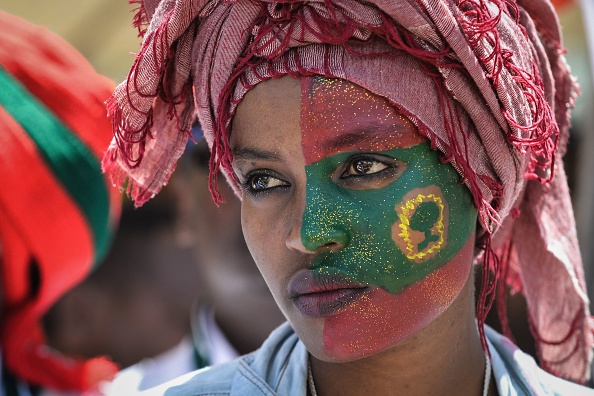After “Surviving R. Kelly,” the three-part Lifetime documentary that documented the disgraced R&B star’s decades-long alleged abuse, the #MeToo movement is reverberating from the U.S. to Ethiopia, where the country is reckoning with sexual violence.
The 53-year-old singer was charged in February with aggravated sexual abuse involving four victims, including at least three between the ages of 13 and 17. Kelly has also been accused of keeping women against their wills in an abusive “cult.”
According to a Buzzfeed News report, the hashtag #MeTooEthiopia aims to shed light on sexual violence and abuse, a conversation that is often taboo.
“Just because we don’t talk about sexual violence doesn’t mean it isn’t happening,” a woman who started the discussion about sexual violence among Ethiopians on Instagram told Buzzfeed. The woman told Buzzfeed she posed the question after thinking, “Who are the R. Kellys of the Ethiopian community?”
Another woman who detailed being sexually abused as a child by a family member told Buzzfeed she didn’t realize the extent of the abuse until she was older. “Oh my god. I know this. I’ve seen this. I didn’t make it up. I was abused as a child, I just didn’t have a word for it.”
Reactions to the post ranged from those thankful for the platform to those who said it made the country look bad.
Ethiopia has made strides in recent years with appointing women in high-level government positions. The country’s first female supreme court president was sworn in last year. And although the role is largely ceremonial, Ethiopia elected its first woman president, Sahle-Work Zewde, last October.
But Habesha activists say it isn’t enough.
Activists started a Change.org petition to prompt Ethiopian Prime Minister Abiy Ahmed to take action against sexual assault in the country.
“We are a group of Ethiopians who are survivors of sexual violence,” the petition reads. “Men and women who have been directly or indirectly affected by the physical, psychological and social trauma of sexual violence in the Ethiopian community.”
Exact data on sexual violence in the country is hard to come by, but a 2003 World Health Organization report estimated that 59% experienced sexual violence at some point by a partner.
“As Ethiopians, we take pride in our rich culture, but we shouldn’t take pride in the culture of silence,” wrote @injeraiscrack. “Sexual assault is the dark shadow that lurks close to all our homes but is rarely acknowledged.”
Written by Victoria M. Walker
